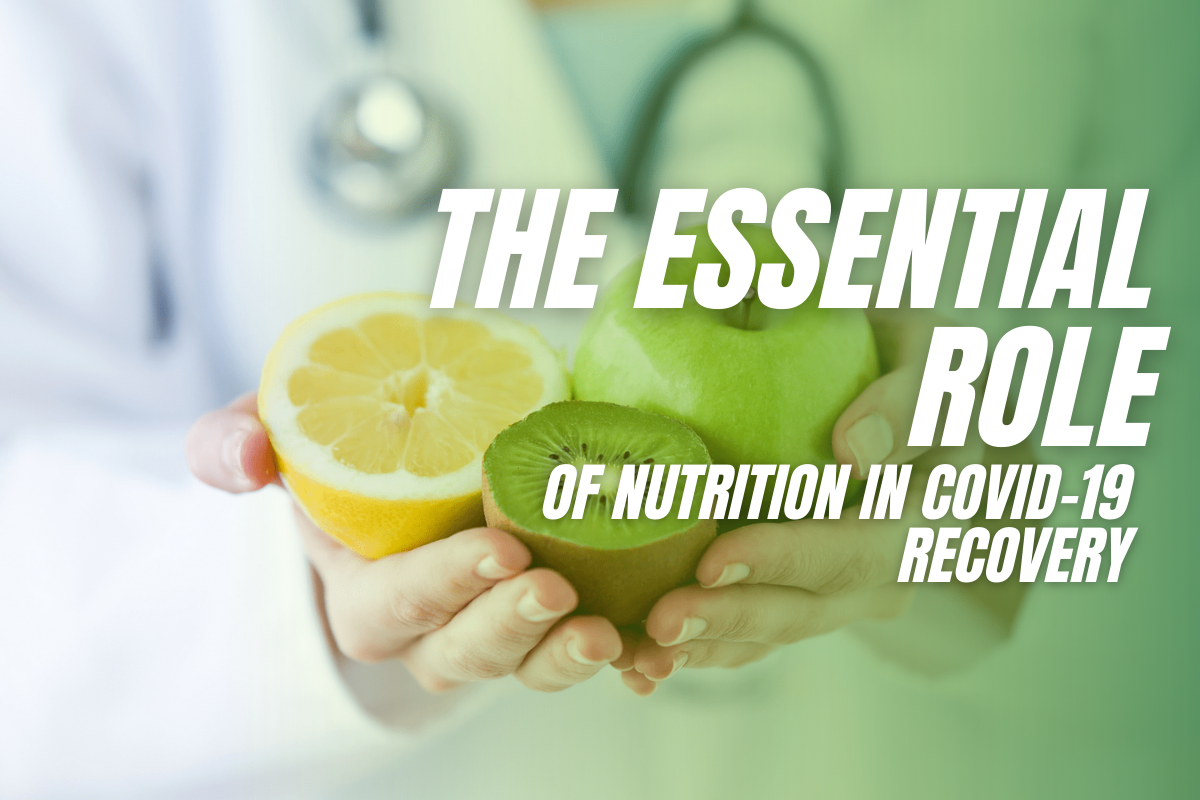
COVID-19 forced healthcare foodservice programs to do a complete 180 in how they serve and deliver food. We've heralded the role of food in healthcare and its healing power, but the coronavirus presents new and unheard-of nutritional challenges for dietitians. So how are they using nutrition to help patients as they fight and recover from COVID-19?
Malnutrition already increases the risk of someone getting sick, staying sick, and worse — dying. Add that into a pandemic, and delivering proper nutrition to sick individuals has never been more vital to the recovery process.
COVID Challenges for Dietitians
For starters, the COVID-19 pandemic has put dietitians in an unenviable position when it comes to working directly with patients. Lack of PPE and isolation requirements often prevent dietitians from performing their typical nutrition-focused exams to identify nutritional problems. Relying on telehealth and virtual exams are available for some facilities, but often a reliance on doctors and nurses to provide dietitians with nutritional updates is necessary.
With up to a quarter of COVID-infected people requiring ICU admission, nutrition is essential in the fight against coronavirus symptoms and helping patients recover quickly. Studies show that these ICU patients, who are often put on ventilators for multiple weeks, will become weaker and lose valuable muscle mass.
Nutrition is one of the best kinds of medicine to fight the virus head-on.
Using Nutrition to Fight COVID
A recent Food Management article on patient nutrition discussed both the challenges and strategies to providing proper nutrition to patients infected with the coronavirus. Some obstacles to nourishing COVID-19 patients include the common symptoms like loss of taste and smell or gastrointestinal distress, while other more severe symptoms like post-ventilator swallowing, respiratory issues, and even psychological ailments ranging from disorientation to depression create more obstacles to recovery.
With all the hurdles to providing nutrition to the people who need it the most, how are dietitians helping get these patients back on the road to recovery through the power of food?
High-calorie and high-protein provide a boost in energy and nutrients in each meal. Nutritional supplements and hydration are also key, especially for people with a lack of appetite to ensure they are receiving nourishment, even when they may not feel up to the challenge. Smaller meals are recommended for patients with poor appetites or respiratory problems so as not to force their bodies to become overworked. Even foods with different ranges of spice can help patients dealing with a loss of taste or smell.
Make Patient Nutrition Easier With the Right Tools
Healthcare foodservice programs everywhere are adapting their methods of meal delivery during COVID-19, and Lakeside is here to help you get the tools you need to keep patients, guests, and staff well-nourished. From meal and tray delivery carts for in-patient dining, hydration service, mobile grab-and-go solutions for guests and staff, and handwashing and PPE storage and transport solutions, Lakeside has you covered.
Alluserv has the COVID-19 Product Solutions you need! Learn about these solutions in our COVID-19 Resource Guide.
